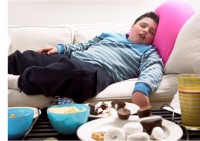One of the best predictors of homeschool success is whether or not you have faith in institutions*.
Most people do. They figure schools know what’s best for kids, medical personnel know what’s best for people, and government knows what’s best for everyone.
It’s easy to say that “I don’t feel that way!” But think about it. Do you figure if homeschooling doesn’t work out, you can always send your kids back to school? When the doctor’s prescription not only doesn’t help your child but makes him worse, do you immediately go back for a different prescription instead of educating yourself on the problem first? And when your government tells you it will handle its enormous debt, do you figure it knows what it’s doing and go back to your day? Because these are all signs of reliance on institutions.
Most of the homeschoolers I’ve known over the years have shared a distrust of institutions. Their school experience was not the highlight of their childhood and may have even been a catalyst for homeschooling their children. They take what their doctors say with a grain of salt and start doing their own research on their (and their loved ones’) health situations, which is why many of them are into homeopathy, follow certain ways of eating ranging from paleo to vegan, and often don’t want their children to be vaccinated. And they respond to their government’s casual reassurances about its financial future by stocking up on food, weapons and, if they have the money, gold.
I see this conflict between those who believe in institutions and those who don’t a lot lately, especially among homeschoolers. I hear from moms who are frustrated because those who run the homeschool co-op their kids attend aren’t being fair, or aren’t offering convenient-enough times or places for co-op classes. Sometimes there’s panic in their tone, and I don’t understand it. I went into homeschooling figuring I was going to have to do it myself, and proceeded accordingly. But these parents don’t see it that way. That tells me that they have too much faith in institutions, and I have to wonder about their commitment to homeschooling their children. I hope they won’t do like some and put their kids back in school, until something happens there that they don’t like and they pull them back out again to homeschool them. That’s not really fair to the child. Kids need consistency, and they’ll find that in the home if their parents are able to provide it.
From what I’ve seen, parents who instinctively distrust institutions are better suited to long-term homeschooling. There’s a self-reliance there that’s lacking in those who trust so-called experts more than their own God-given common sense.
*I’m using the term “institutions” as a catch-all that includes organizations, bureaucracies, teams and organized groups.

